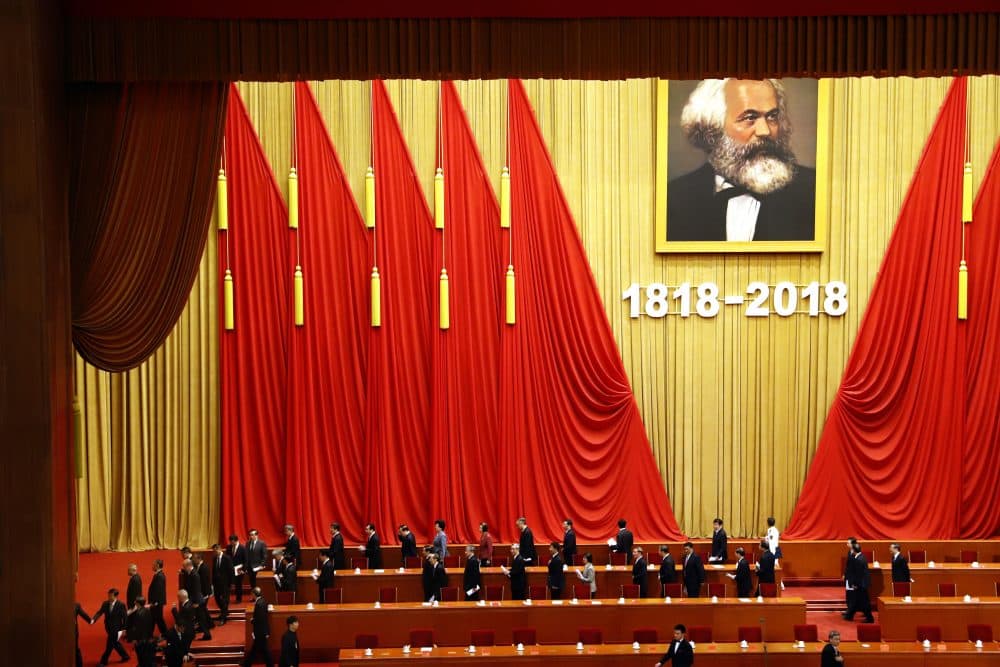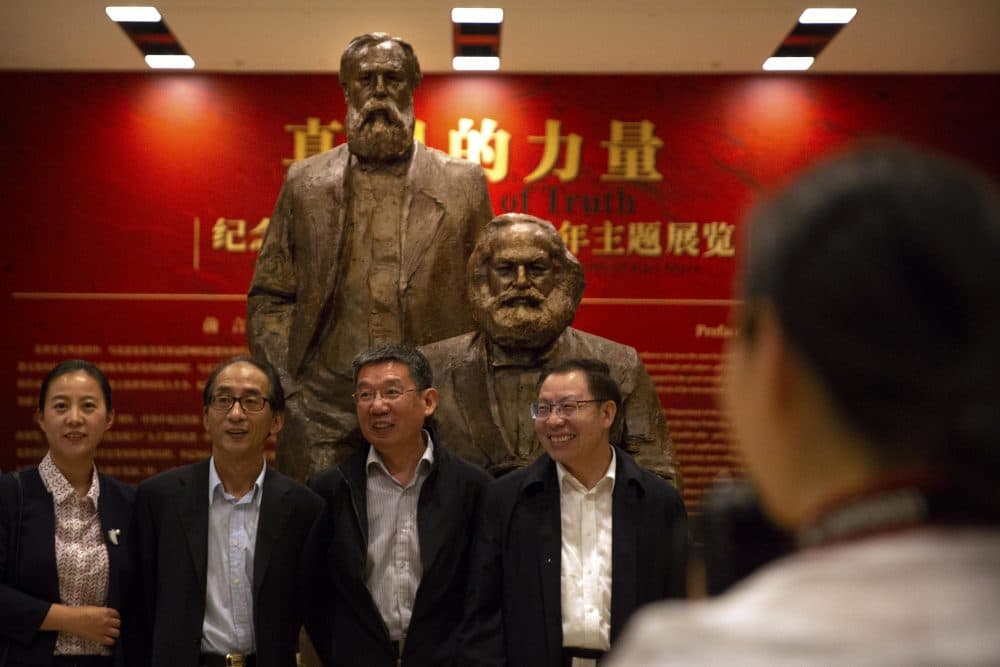Advertisement
Commentary
China Reveres Karl Marx — And Revels In Capitalism's Spoils

This month marks the bicentennial of an unusually consequential birth: Karl Marx, who entered the world on May 5, 1818. China’s president marked the anniversary by celebrating the man whose ideology resulted in the enslavement and death of tens of millions of his countrymen.
“[Karl Marx is] The greatest thinker in the history of mankind,” Xi Jinping gushed recently about the father of communism on the eve of his birthday. Xi proclaimed that “unceasingly promoting the Sinification and modernization of Marxism is totally correct.”
Especially to young people for whom the Cold War is ancient history, Marxism may seem as relevant as a typewriter. But when the leader of China lionizes its legacy it matters, because of its influence with North Korea and its importance to the global economy.
Xi’s speech endorsed an ideology whose idolaters plunged his venerable country into a nightmare of state terror. Even as a matter of economics, calling Marxism — modernized or retro — “totally correct” is fake news of Trump-ish proportions.
The good news is that Xi probably doesn’t believe a word of it.

There’s no denying Marx was one of history’s boldest thinkers. Equally undeniable: his thinking was, in the most crucial respects, wrong, and later perverted by self-professed disciples, Mao Zedong among them.
When another commemorator, European Union President Jean-Claude Juncker, absolved Marx of Marxism’s sins, he perhaps had in mind the 20 million human beings starved to death during the Great Leap Forward, Mao’s catastrophic reorganization of rural China. Or the 1 million, give or take, killed during China’s Cultural Revolution, Mao’s effort to purify Chinese communism. (Of course, Juncker also may have been thinking of the millions killed by Stalin, the Khmer Rouge, and other non-Chinese demons, all of whom masqueraded as agents of Marx’s concern for downtrodden workers.)
Is this really the path Xi seeks for his country? The president is no Mao-like sociopath; few men have been. Yet by sidelining or prosecuting opponents, and engineering the repeal of limits on his term of office, he has become what an Associated Press writer called China’s most powerful leader since Mao.
Some experts say Xi’s hosannas to the German-born Marx is merely PR aimed at distinguishing China from us and the West. Zhang Lifan, a Beijing-based political analyst, told the AP, “Even inside China, I believe most party leaders don’t understand or believe in Marxism anymore. Instead, they just use it as a tool for promotion.”
Let’s hope that’s true of Xi, who after all praised free markets just last year at the Davos economic forum.
Marx can no more be blamed for the murders committed in his name than can Jesus, but he can be held to account for his economics. And while admirers credit him with foreseeing everything from Walmart to successive iterations of the iPhone, the march of history trampled and made roadkill of his big ideas.
He decreed capitalism’s implosion inevitable; yet 150 years later, it’s still here, while globalization has hoisted millions of people (including millions in China) out of poverty.
Some experts say Xi’s hosannas to the German-born Marx is merely PR aimed at distinguishing China from us and the West.
Marx, writes economic historian Sylvia Nasar, “compiled an impressive array of evidence ... to show that the living standards of workers were wretched and working conditions horrendous.” But he missed how the capitalism of England, where he settled, was making real progress against those problems in the 1850s and ’60s, growing both a middle class and wages.
The development of labor unions and government social programs made further hash of Marx’s certainty that capitalist societies could never reform themselves.
Bernie Sanders had the failures of Marxism in mind when he disavowed government ownership of the means of production, in favor of the democratic socialism of Scandinavian nations — which are, the s-word notwithstanding, heavily regulated and safety-netted capitalist societies. Sanders also knows that Scandinavia doesn’t run gulags or Cultural Revolutions.
The final word on Marx the thinker, though, should come from John Maynard Keynes, who laid the intellectual foundation for the New Deal and really was a great economist. Of Marx’s magnum opus, "Das Kapital," Keynes snorted, “An obsolete economic textbook, which I know to be not only scientifically erroneous but without interest or application to the modern world.”
